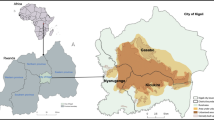Abstract
In response to the personalized needs of the tourism industry, intelligent tourism planning services should be adopted. Through artificial intelligence and Big data technology, users' travel preferences, time, budget and other information are analyzed and mined in depth to provide users with more suitable travel routes and services. Therefore, according to the demand of tourist path recommendation in cultural scenic spots, this paper proposes a light sensor positioning method based on deep learning algorithm. This paper expounds the advantages of using optical sensor positioning for path recommendation, and describes the specific steps and processes of the optical sensor positioning method based on deep learning algorithm in detail. Finally, the feasibility and effect of this method are verified by experiments and data analysis. The results show that the localization of light sensor based on deep learning algorithm has high accuracy and practicability in the travel path recommendation of cultural scenic spots. Therefore, this method can provide accurate and reasonable path recommendation for tourists in cultural scenic spots and improve tourism experience and benefits. With the continuous development of the tourism market and the changing needs of users, this personalized tourism route planning and recommendation system will be increasingly widely applied and promoted.







Similar content being viewed by others
Data availability
The data will be available upon request.
References
Cabrera, C., Svorobej, S., Palade, A., Kazmi, A., Clarke, S.: MAACO: a dynamic service placement model for smart cities. IEEE Trans. Serv. Comput.Comput. 16(1), 424–437 (2022)
Chen, R., Hua, Q., Chang, Y.S., Wang, B., Zhang, L., Kong, X.: A survey of collaborative filtering-based recommender systems: from traditional methods to hybrid methods based on social networks. IEEE Access 6, 64301–64320 (2018)
Dadashi, N., Golightly, D., Sharples, S.: Seeing the woods for the trees: the problem of information inefficiency and information overload on operator performance. Cogn. Technol. Work. Technol. Work 19, 561–570 (2017)
Damos, M.A., Zhu, J., Li, W., Hassan, A., Khalifa, E.: A novel urban tourism path planning approach based on a multiobjective genetic algorithm. ISPRS Int. J. Geo Inf. 10(8), 530 (2021)
Ginanjar, A., Hendayun, M.: Spring framework reliability investigation against database bridging layer using Java platform. Procedia Comput Sci 161, 1036–1045 (2019)
Haimes, Y.Y.: Risk modeling of interdependent complex systems of systems: theory and practice. Risk Anal. 38(1), 84–98 (2018)
Hassannia, R., VatankhahBarenji, A., Li, Z., Alipour, H.: Web-based recommendation system for smart tourism: multiagent technology. Sustainability 11(2), 323 (2019)
Jalili, M., Ahmadian, S., Izadi, M., Moradi, P., Salehi, M.: Evaluating collaborative filtering recommender algorithms: a survey. IEEE Access 6, 74003–74024 (2018)
Jalilvand, M.R., Khazaei Pool, J., Khodadadi, M., Sharifi, M.: Information technology competency and knowledge management in the hospitality industry service supply chain. Tour Rev 74(4), 872–884 (2019)
Jovicic, D.Z.: From the traditional understanding of tourism destination to the smart tourism destination. Curr. Issue Tour.. Issue Tour. 22(3), 276–282 (2019)
Khanal, S.S., Prasad, P.W.C., Alsadoon, A., Maag, A.: A systematic review: machine learning based recommendation systems for e-learning. Educ. Inf. Technol. 25, 2635–2664 (2020)
Mehmood, F., Ahmad, S., Kim, D.: Design and development of a real-time optimal route recommendation system using big data for tourists in Jeju Island. Electronics 8(5), 506 (2019)
Sansonetti, G., Gasparetti, F., Micarelli, A., Cena, F., Gena, C.: Enhancing cultural recommendations through social and linked open data. User Model. User-Adap. Inter.Adap. Inter. 29, 121–159 (2019)
Santamaria-Granados, L., Mendoza-Moreno, J.F., Ramirez-Gonzalez, G.: Tourist recommender systems based on emotion recognition—a scientometric review. Future Internet 13(1), 2 (2020)
Sofronov, B.: The development of the travel and tourism industry in the world. Annals of Spiru Haret university. Econ Series 18(4), 123–137 (2018)
Funding
The authors have not disclosed any funding.
Author information
Authors and Affiliations
Contributions
Wei He has contributed to the paper’s analysis, discussion, writing, and revision.
Corresponding author
Ethics declarations
Conflict of interest
The authors declare that they have no competing interests.
Ethical approval
Not applicable.
Additional information
Publisher's Note
Springer Nature remains neutral with regard to jurisdictional claims in published maps and institutional affiliations.
Rights and permissions
Springer Nature or its licensor (e.g. a society or other partner) holds exclusive rights to this article under a publishing agreement with the author(s) or other rightsholder(s); author self-archiving of the accepted manuscript version of this article is solely governed by the terms of such publishing agreement and applicable law.
About this article
Cite this article
He, W. Application of light sensor localization based on deep learning algorithm in tourist path recommendation in cultural scenic spots. Opt Quant Electron 56, 238 (2024). https://doi.org/10.1007/s11082-023-05876-5
Received:
Accepted:
Published:
DOI: https://doi.org/10.1007/s11082-023-05876-5




